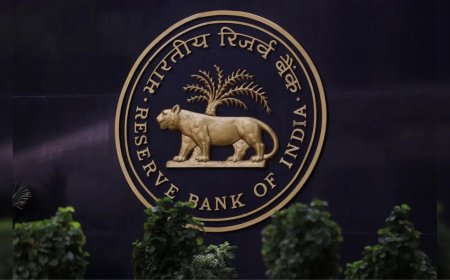Merchant bankers tasked to bring foreign capital into PSU banks during upcoming QIPs
The Indian government instructs merchant bankers to attract global investors during upcoming PSU bank QIPs aimed at raising over ₹30,000 crore. Here’s what it means for markets and investors.

New Delhi, July 30, 2025 — The Indian government has taken a strategic step to strengthen the capital base of public sector banks (PSBs) by directing merchant bankers to actively seek foreign institutional investment during the upcoming series of Qualified Institutional Placements (QIPs). The move aligns with the Centre’s broader goal of fortifying the public banking sector amid evolving global financial conditions and robust credit demand.
Government Pushes for Global Participation
According to sources in the Department of Financial Services (DFS), merchant bankers have been instructed to tap into international markets to ensure a diversified investor base. The objective is not only to raise capital efficiently but also to project India’s public banking sector as an attractive investment avenue for global investors.
“These QIPs are not merely a fundraising exercise,” a senior finance ministry official said. “We are positioning our PSU banks as competitive, well-governed institutions capable of delivering strong returns and contributing to India’s growth story.”
QIPs are scheduled for late Q3 and early Q4 FY25, with Punjab National Bank, Bank of Baroda, Canara Bank, and Union Bank of India among the key players expected to raise between ₹5,000 to ₹10,000 crore each. The total targeted amount could exceed ₹30,000 crore.
Rationale Behind the Move
Public sector banks have reported healthy earnings in the last few quarters due to declining non-performing assets (NPAs), higher net interest margins, and increased credit offtake, particularly in retail and MSME sectors. However, to sustain this momentum and maintain adequate capital adequacy ratios, PSBs are required to bolster their Tier-I capital buffers.
“With rising interest rates in developed markets, attracting global capital is more competitive than before,” said Arvind Chari, CIO at Quantum Advisors. “But India’s macroeconomic stability and PSU banks' improved balance sheets can appeal to sovereign wealth funds, pension funds, and long-only investors.”
Merchant Bankers Step Up Global Roadshows
Top investment banks including Axis Capital, ICICI Securities, SBI Capital Markets, and foreign firms such as JPMorgan, Citi, and Bank of America have been empaneled to manage the QIPs. These bankers are expected to organize global roadshows in financial hubs such as London, Singapore, New York, and Dubai, starting in mid-August.
A senior merchant banker involved in the process noted, “Our mandate goes beyond execution — we are tasked with creating a global narrative. We will highlight reforms in PSU governance, digitization, asset quality improvements, and government support as key investment themes.”
Recent Reforms Add Weight to Investment Thesis
The government’s aggressive banking reforms over the last decade — including consolidation of weaker banks, recapitalization, and enhanced governance frameworks — have started bearing fruit. PSU banks now follow stricter board oversight, improved risk management norms, and greater technology adoption.
“Foreign investors previously saw PSU banks as underperforming state entities. That perception is changing,” said Sakshi Mehra, senior banking analyst at Emkay Global. “The turnaround stories are backed by data — credit growth, profitability, and return on assets are all trending upwards.”
Market Context and Timing
The timing of these QIPs appears strategic. The Nifty PSU Bank index has surged over 30% year-to-date, outperforming the broader market indices. Investor appetite for banking stocks remains strong, bolstered by expectations of rate cuts in early 2026 and continued economic expansion.
The rupee has remained relatively stable, and India’s foreign exchange reserves are near all-time highs — factors that could reassure foreign investors. Furthermore, the government’s commitment to fiscal consolidation and adherence to inflation targets have reinforced macroeconomic confidence.
Investor Outlook: Mixed but Encouraging
While many analysts remain optimistic, some caution that valuation concerns could weigh on QIP pricing. Most PSU bank stocks have rallied sharply, making it crucial for merchant bankers to structure the offerings attractively.
“The key lies in balancing pricing with long-term investor interest,” said Devang Bhatt, a portfolio manager at a global hedge fund. “If the QIPs are offered at modest discounts and are backed by clear growth guidance, they could attract significant foreign flows.”
Domestic institutional investors, including mutual funds and insurance companies, are also expected to participate, ensuring a healthy anchor book before overseas roadshows kick off.
A Crucial Capital Push
The upcoming QIPs, if executed successfully, could mark a watershed moment for India’s PSU banks. By targeting foreign institutional investors, the government hopes to signal confidence, transparency, and growth-oriented reforms.
With favorable market dynamics, improved fundamentals, and well-defined global outreach, merchant bankers now carry the responsibility of not just raising capital, but reshaping investor sentiment toward India’s public banking sector.
What's Your Reaction?
 Like
0
Like
0
 Dislike
0
Dislike
0
 Love
0
Love
0
 Funny
0
Funny
0
 Angry
0
Angry
0
 Sad
0
Sad
0
 Wow
0
Wow
0












































































